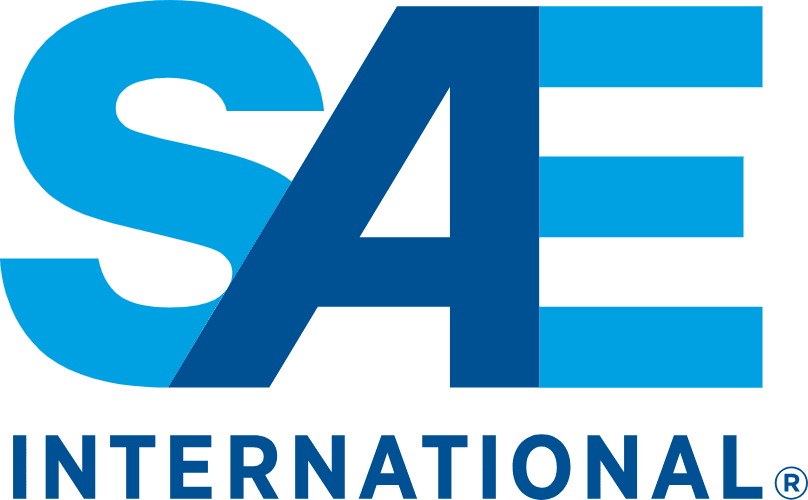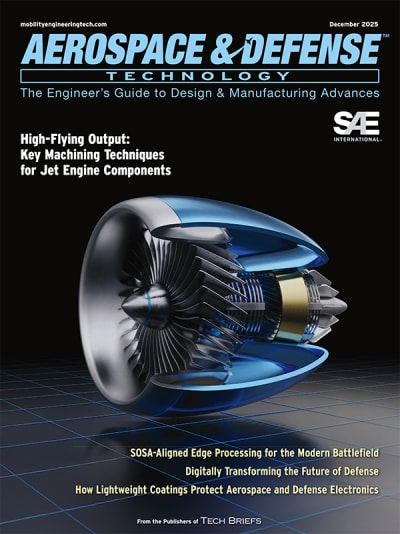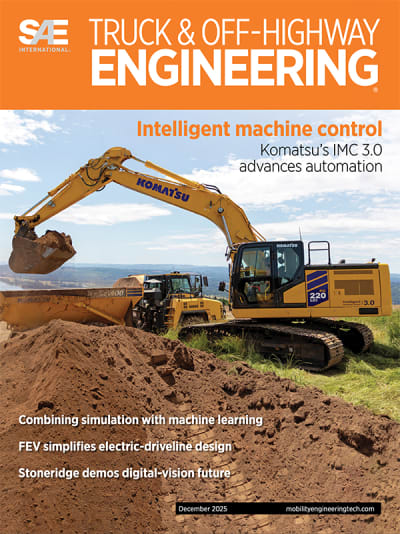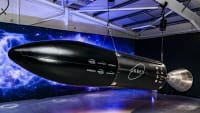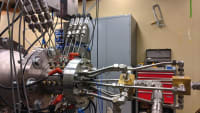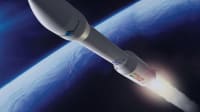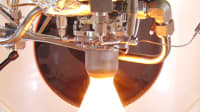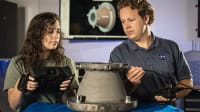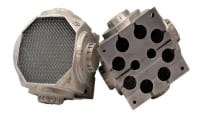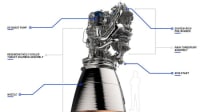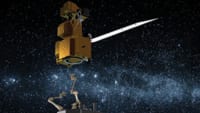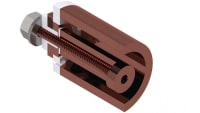Rocket Engine Technology
Invocon, Inc.
Conroe, TX
281-292-9903
www.invocon.com
The team of Invocon, Inc., KT Engineering Corporation, and Troy 7, Inc. has been awarded a Prototype Project Award by the U.S. Air Force Space and Missile Systems Center (SMC) for the Aerospike Rocket Integration and Suborbital Experiment (ARISE). Awarded through the Space Enterprise Consortium ® (SpEC) and managed by the Air Force Research Labs (AFRL) Rocket Lab at Edwards AFB, California, the project will demonstrate flight in a sub-orbital flight test of a launch vehicle utilizing a single rocket engine with an annular aerospike nozzle, modular thrust cells, and modular turbomachinery.

The primary objective of the flight test is obtaining flight performance data for the modular aerospike engine over a range of operation representative of a launch vehicle trajectory, including open wake regime, wake transition, and closed wake regime. To achieve this objective, the team will produce a highly instrumented modular aerospike engine and launch vehicle and perform integration activities, execute range coordination, and conduct launch operations on a sub-orbital flight, the first of which is scheduled for 2022.
This effort will also mark the first representative flight of an aerospike engine after many decades of research and abandoned flight efforts. Aerospike nozzles operate in three modes (open wake, wake transition, and closed wake) at specific altitudes depending on the engine design, flight trajectory, and ambient atmospheric conditions. ARISE will fly a launch-to-orbit trajectory to ensure the aerospike nozzle operates in all three regimes and gathers applicable data for future launch vehicles.
The benefits of this structure include improved performance, better facilitation of integration schemes between vehicle and engine, and improved adaptability between different derivative engine and vehicle. Until now, uncertainties related to design and performance presented barriers to engine modularity and aerospike nozzles in launch vehicles. Since ARISE will demonstrate relevant behavior in flight and gather large amounts of data that can anchor models, this initiative will significantly decrease the risks and costs associated with developing future rocket engines that incorporate this technology.
KT Engineering (KTE) is a small business specializing in the research, design, analysis and testing of aerospace systems, subsystems and components. KTE has demonstrated expertise in the research and development of low-cost chemical rocket engines, high-performance pressurization systems, and lightweight metallic tanks and structures, and 18 years of experience in the design, analysis and testing of aerospike and plug cluster rocket engines.
Troy7 is a woman-owned small business with core competencies in guidance and control, telemetry, vehicle design, and launch operations. Troy7 is a highly technical small business with a legacy of support to more than 350 DoD and NASA flight test missions. Troy7 currently supports MDA, the National Aeronautics and Space Administration (NASA), PEO Missiles and Space, the US Army Space and Missile Defense Command (SMDC), and commercial companies.
Invocon is a veteran-owned small business that provides turnkey instrumentation and control solutions for demanding applications in extreme environments for the sensing and data acquisition communities. For the ARISE project, Invocon is responsible for engine instrumentation, PCM telemetry encoders and transmitters, vehicle battery power and control, and flight termination system. As a SpEC Consortium member, Invocon will serve as prime contractor for the project.
For Free Info Visit Here
Top Stories
INSIDERRF & Microwave Electronics
![]() FAA to Replace Aging Network of Ground-Based Radars
FAA to Replace Aging Network of Ground-Based Radars
PodcastsDefense
![]() A New Additive Manufacturing Accelerator for the U.S. Navy in Guam
A New Additive Manufacturing Accelerator for the U.S. Navy in Guam
NewsSoftware
![]() Rewriting the Engineer’s Playbook: What OEMs Must Do to Spin the AI Flywheel
Rewriting the Engineer’s Playbook: What OEMs Must Do to Spin the AI Flywheel
Road ReadyPower
![]() 2026 Toyota RAV4 Review: All Hybrid, All the Time
2026 Toyota RAV4 Review: All Hybrid, All the Time
INSIDERDefense
![]() F-22 Pilot Controls Drone With Tablet
F-22 Pilot Controls Drone With Tablet
INSIDERRF & Microwave Electronics
![]() L3Harris Starts Low Rate Production Of New F-16 Viper Shield
L3Harris Starts Low Rate Production Of New F-16 Viper Shield
Webcasts
Energy
![]() Hydrogen Engines Are Heating Up for Heavy Duty
Hydrogen Engines Are Heating Up for Heavy Duty
Energy
![]() SAE Automotive Podcast: Solid-State Batteries
SAE Automotive Podcast: Solid-State Batteries
Power
![]() SAE Automotive Engineering Podcast: Additive Manufacturing
SAE Automotive Engineering Podcast: Additive Manufacturing
Aerospace
![]() A New Approach to Manufacturing Machine Connectivity for the Air Force
A New Approach to Manufacturing Machine Connectivity for the Air Force
Software
![]() Optimizing Production Processes with the Virtual Twin
Optimizing Production Processes with the Virtual Twin
